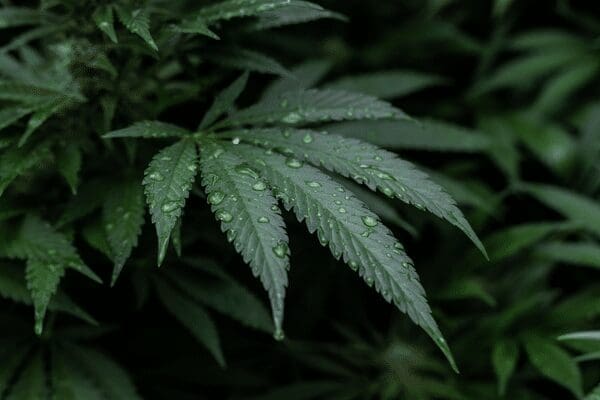*If you buy a product, I’ll make a commission at no extra cost to you!*
Is weed a depressant?
Drugs are categorized by the effects they produce in four main categories:
- Depressants
- Stimulants
- Hallucinogens
- Opiates
Effects vary person-to-person, so a deeper understanding of weed’s impact is essential.
Is Marijuana A Narcotic?

Well unfortunately yes, marijuana is classified as a narcotic pretty much everywhere.
To understand if weed is a depressant, we need to see what a depressant is at its core.
What Is a Depressant?
Depressants act on the nervous system and slow brain function.
In combination, these effects can relax stiff muscles and calm nerves.
These medications are often used to treat anxiety, insomnia, and muscle spasms.
Aside from it’s benefits, the side of effects of depressants can cause…
-
- Dizziness
-
- Reduced motor coordination
-
- Short-term memory loss
-
- Nausea
-
- Relaxation
As a rule, depressants are less addictive than other drugs, but this doesn’t mean that they are completely safe.
If used long enough, you can develop a tolerance to depressants. This means that you have to use more of it to feel the effects.
Another problem you may face is becoming dependent on weed.
For instance, if you use marijuana to help with sleep, you might find yourself struggling with insomnia once you stop consuming it.
Is Marijuana a Stimulant?

Opposite to depressants are stimulants.
The effects of stimulants are improved mood, enhanced focus, and increased energy levels.
Marijuana, especially Sativa strains, can cause stimulant effects such as:
Increased Energy
More Present Living
Elevated mood
Arousal
If we are looking at marijuana as a stimulant, it’s far safer than most other drugs that fall into this list. Such as: cocaine, methamphetamine, and even Adderall.
Also consider that different marijuana strains produce different effects. For example, Indica strains produce more depressant-like effect
Is Indica A Stimulant?

Well not exactly, sativa strains tend to produce more stimulant-like effects.
Although, if we take a closer look at the stimulant vs depressant effects of marijuana, it can easily be listed in both categories.
Your personal experience with each strain is what matters the most.
You may find that some sativas may feel like indica varieties because no strain is purely one or the other.
Don’t be afraid to diversify your stash!
Is Marijuana a Hallucinogen?
Hallucinogens are substances that alter your perception of reality, cause visual or auditory hallucinations, and distort feelings of time and space.
Hallucinations are possible when taking marijuana, however, they rarely occur, at least in low doses.
Marijuana can cause time distortion and may have hallucinogenic properties.
Some of the side effects classic hallucinogens produce are:
Detachment from self or environment
Loss of control over motor skills
Nausea
Dry mouth

If we look at these adverse effects alone, it’s not hard to understand why many people classify weed as a hallucinogen.
Hallucinogenic drugs can cause difficulty speaking, memory loss, anxiety, and HPPD (hallucinogen-persisting perception disorder).
Although marijuana usually doesn’t produce these side effects it may cause anxiety and depression, which it may also treat.
Marijuana can be a double-edged sword, for some people it works completely differently than for others.
Is Weed A Depressant?
As you can see, marijuana can have a wide variety of physiological and psychological effects.

Marijuana can help people treat anxiety and depression, while it may make it worse for others.
marijuana may cause psychological dependence.
If you are using it to treat anxiety or insomnia, you might face these symptoms again once you stop taking marijuana.
However, it will not cause physical dependence like many other depressants if you aren’t prone to abusing THC.


